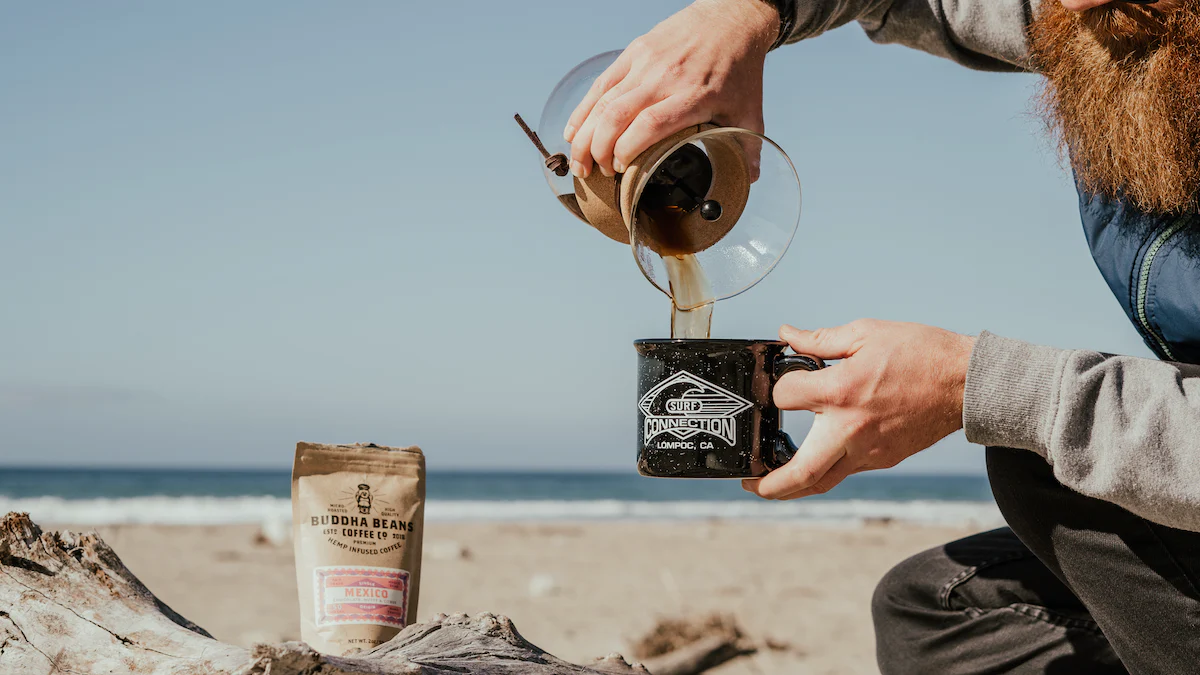FTC/ASA Disclosure: Some links in this post are affiliate links. At no additional cost to you, I will earn commission if you purchase via my links. Thank you in advance for your support! 🙏 It means a lot to me. ❤️
Coffee is the worlds most consumed beverage. It fills us with energy and is a main reason why we get out of bed in the morning. But what is it really doing for us? Is it healthy? Some people believe that because it contains caffeine, which is known to help with focus and concentration, it must therefore be bad for you. Others believe that it is the secret to their success: never missing a day, no matter what. So, what is the truth behind the coffee craze?
You hear a lot about coffee these days, and whether it’s good or bad for you. There’s a lot of conflicting information out there, but it’s generally agreed by coffee drinkers that coffee is at least somewhat healthy. Coffee contains antioxidants, which are considered good for your body. It can also be a good source of magnesium, which can help to protect your DNA against damage. The caffeine in coffee can also boost your metabolism, making it easier to lose weight, and can help to keep you alert. But too much caffeine can have the opposite effect: increasing your blood pressure, making you feel edgy, and may lead to insomnia.
Easy on the Cream and Sugar

Photo by Jason Leung on Unsplash
If you’re serious about your coffee, you’re probably already familiar with the idea that cream and sugar are not your best friends. But what you might not know is just how harmful they can be. Cream’s biggest problem is a chemical called trans-palmitoleic acid, or trans-16:1—it’s produced when pasteurized milk is heated during the cream-making process. According to a study in the Journal of Dairy Science, trans-16 can create cells that promote heart disease. Adding sugar to your coffee is even worse, since it’s been linked to diabetes and other health problems. So go easy on cream and sugar, and stick to milk and artificial sweetener instead
How Much Coffee is too Much?

Photo by Nathan Dumlao on Unsplash
How much coffee is too much? Everyone has their limit—their personal cup of coffee or Joe. Some can’t get out of bed without it, while others are fine with one cup to start the morning. But what if you’re severely dependent on caffeine to wake up, pay attention, and stay alert? What if you’re drinking five or six cups a day? Then you may have a problem. And that’s what this post is all about: How much coffee is too much coffee?
The Most Expensive Coffee
Coffee lovers love finding out about new and exciting types of coffee. Different countries produce different blends, which is why there’s such a huge market for coffee from every corner of the globe. The most expensive coffee in the world comes from civets. Civets are a cat-sized mammal native to Africa. Civets eat coffee berries, and then poop them out. (That’s the technical term, but it’s a bit more gross than that sounds.) Then, the poop is collected, and the coffee cherries are washed, dried, and roasted. Which produces some of the most expensive coffee in the world.
Is Coffee Really Good for You?

Photo by NATHAN MULLET on Unsplash
The health effects of coffee are a subject of hot debate. Some coffee drinkers, consider it to be an unhealthy addiction that they must break themselves of, while others enjoy it both for its taste and its health benefits. The jury is still out on the effects of coffee on overall health, but experts do agree on some specific health effects of coffee. The short answer is, yes, coffee is good for you.
How About for Children and Teens?

Photo by Providence Doucet on Unsplash
The debate has raged on for years: is coffee good for children and teens? One side argues that coffee is a drug that gives you a buzz and that it’s addictive. The other side argues that the health benefits of coffee outweigh these potential negatives. Both sides have some pretty convincing arguments.
Brewhilda.com is a participant in the Amazon Services LLC Associates Program, an affiliate advertising program designed to provide a means for sites to earn advertising fees by advertising and linking to Amazon.com.











